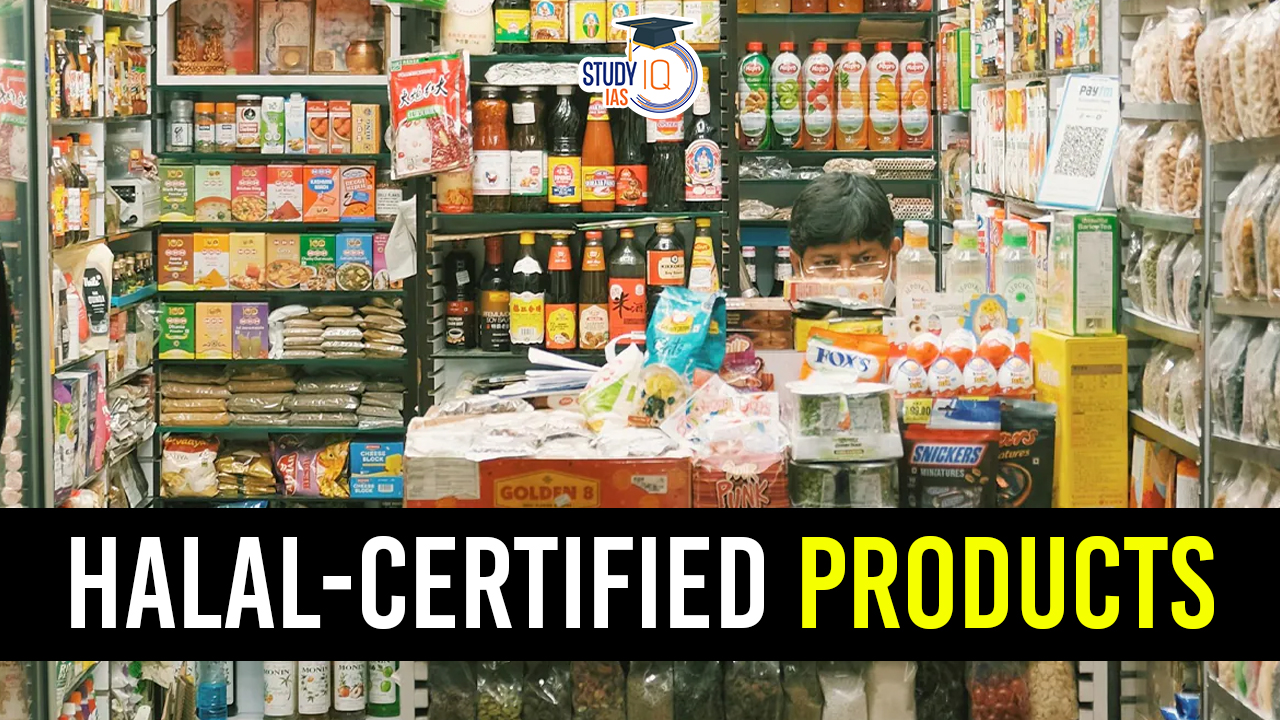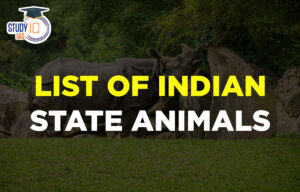Table of Contents
Halal certification is a process that ensures that a food product or ingredient is permissible for consumption according to Islamic law. This includes ensuring that the food does not contain any prohibited ingredients and that it has been prepared in accordance with Islamic guidelines.
UP Government Cracks Down on Kanwar Yatra Vendors and Halal Certification
Politics in Uttar Pradesh is heating up again following a recent directive from the state government. Eateries, dhabas, fruit shops, and tea stalls along the Kanwar Yatra route have been instructed to display nameplates indicating the proprietors’ details. Furthermore, the state government has announced that action will be taken against vendors selling products with Halal certification.
What is ‘Halal Certification’?
Halal certification is a process that ensures that a product or service complies with Islamic Law. It guarantees that the food is prepared by Islamic law and is unadulterated. It also ensures that the product does not include any “forbidden” components, and has not been in contact with any substances or objects considered “impure”.
Halal certification is mainly applied to meat products and other products such as milk, canned food, and additives. It also applies to the cosmetic and pharmaceutical sectors.
In India, halal certification is usually provided by a third-party body. Some private companies that provide halal certification in India include MTR, Venky’s, Sufi, and McDonald’s.
What is a Halal-certified product?
Halal-certified products are products that are prepared in accordance with Islamic law and are suitable for consumption by Muslims. The term “halal” is Arabic for “permissible”. The halal certification applies to the following sectors: Food, Cosmetics, and Pharmaceuticals.
Halal certification guarantees that the food is prepared adhering to Islamic law and is unadulterated. It also attests that a product does not include any “forbidden” components, and has in no way been in contact with any substances or objects considered “impure”.
Halal-Certified Products Means
Halal-certified products are those that have been prepared in accordance with Islamic law and are suitable for consumption by Muslims. The term “halal” is Arabic for “permissible”. Halal certification applies to the following sectors: Food, Cosmetics, Pharmaceuticals.
Halal certification ensures that products:
- Are manufactured in compliance with Islamic law
- Do not contain any “forbidden” components
- Have not come into contact with any substances or objects considered “impure”
- Meet the requirements of Islamic law
In India, halal certification is usually provided by a third-party body.
Some examples of halal-certified foods include:
- Certified meat and poultry
- Seafood
- Nuts
- Eggs
- Peanut butter
- Tofu
- Halal deli meats
- Legumes
Halal-Certified logo
The Halal logo is a bright green and white circular badge with the white words “Halal” in uppercase. The logo can be placed above or below the same inscription in Arabic.

The Halal logo can be used on all communication tools for organizations that have been granted Halal Certification. This includes Letterheads, Business cards, Marketing materials, Videos, Websites, Advertising, and Exhibition graphics.
Halal-Certified Products Ban in UP
The Uttar Pradesh government banned halal-certified products on November 18, 2023. This ban applies to all halal-certified food products and medicines, including those for export. The ban covers these products’ production, storage, distribution, and sale.
The UP Government stated that the ban was imposed in the interest of public health and to prevent confusion. An official spokesperson also claimed that the halal tag was being used to spread “propaganda” and “exploit religious sentiment”.
Halal products are those that are defined as “permissible” by Islamic law. They are usually identified by the letter M. Halal-certified logo- Muslim councils or Halal supervision boards authorize companies to print the “Halal-certified” logo on their packaging.
The government’s decision to ban halal-certified products has sparked debates and discussions about religious preferences, business practices, and the perceived impact on societal unity.
Halal Certification in India
Halal certification in India serves as documentation affirming a product or service’s adherence to Islamic dietary laws. It ensures that the food is prepared in accordance with Islamic principles and is free from adulteration.
Typically, halal certification in India is applicable to the food, cosmetic, and pharmaceutical sectors. While it is commonly associated with meat products, it also extends to various food items like milk, as well as food additives.
In India, third-party bodies, including many private companies, are involved in providing halal certification. The certification process incurs certain costs, encompassing consignment certification charges for non-meat products, auditor expenses per man-day, and professional fees.
However, a recent development in the most populous state of India, Uttar Pradesh, involves the prohibition of the distribution and sale of Halal-certified products. This ban was prompted by a police case against a company and several other organizations accused of “exploiting people’s religious sentiments” to enhance sales through the issuance of allegedly “forged” halal certificates.
Who issues Halal Certificate?
In India, various third-party entities, including Halal India Private Limited, HALAL Certification Services India Private Limited, Jamiat Ulama-E-Maharashtra, and Jamiat Ulama-i-Hind HALAL Trust, issue Halal certification to companies and products. Certification is granted to products sourced acceptably and slaughtered according to Islamic law.
Halal Certification Bodies
- Halal India
- Jamiat Ulama-i-Hind Halal Trust
- Halal Certification Services India Pvt Ltd
Halal foods adhere to Islamic cleanliness standards in production, processing, and storage, ensuring they are free from prohibited components. Notable Halal-certified food brands in India include MTR, Venky’s, Sufi, and McDonald’s.
Also, Check UPSC Syllabus 2024
List of halal-certified Products in India
The list of halal-certified products in India can be a bit challenging due to the wide range of products and the various certifying bodies. However, here are some common categories and brands that are known for offering halal-certified products in India:
Food Products
- Meat and Poultry
- Al Kabeer
- Freshtohome
- Licious
- Processed Foods
- Amul (selected products)
- Britannia (selected products)
- Nestlé (selected products)
- Snacks and Confectioneries
- Haldiram’s (selected products)
- Bikano (selected products)
- Cadbury (selected products)
Beverages
- Hamdard (e.g., Rooh Afza)
- PepsiCo (selected products)
- Coca-Cola (selected products)
Personal Care Products
- Skin Care
- Himalaya
- Dabur
- Patanjali (selected products)
- Hair Care
- Sunsilk
- Clinic Plus
- Pantene
- Cosmetics
- Colorbar
- Lakmé (selected products)
- Lotus Herbals
Also, Check List of GI Tags in India 2024


 Places in News for UPSC 2025 for Prelims...
Places in News for UPSC 2025 for Prelims...
 List of Indian State Animals with their ...
List of Indian State Animals with their ...
 World Heritage Day 2025, Theme, Objectiv...
World Heritage Day 2025, Theme, Objectiv...





















